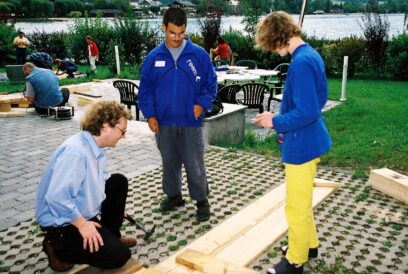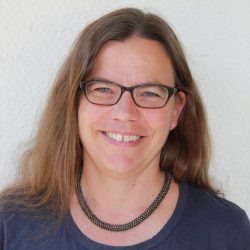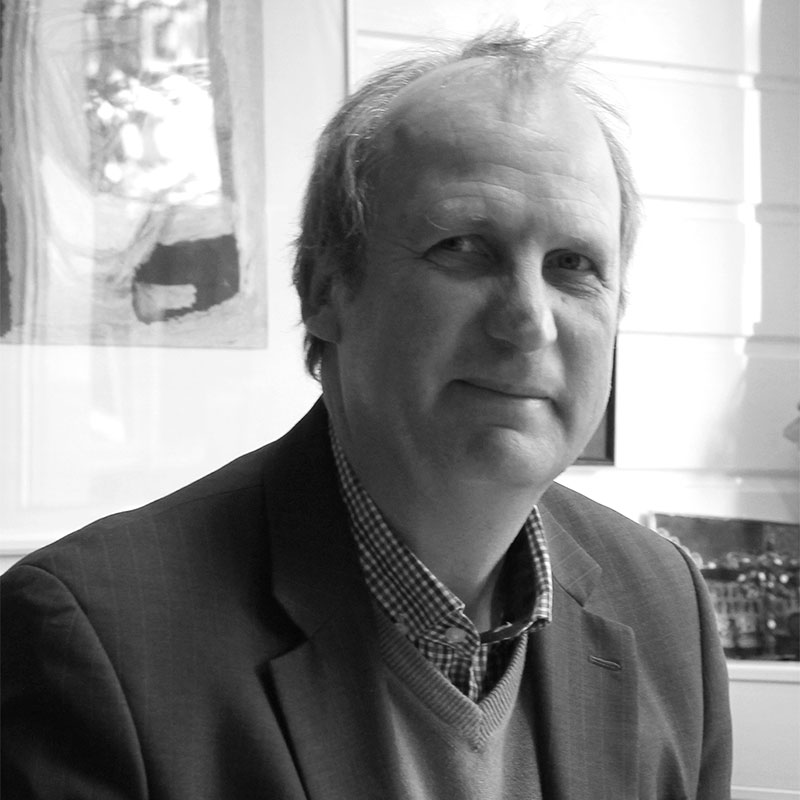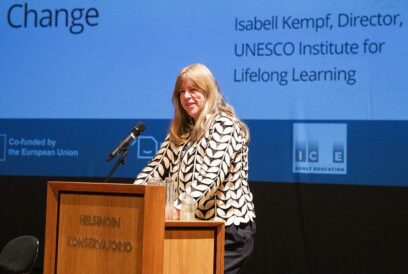

Many mathematics teachers have a view of the subject that is dominated by an instrumentalist, traditional view of mathematics.
Many mathematics teachers have a view of the subject that is dominated by an instrumentalist, traditional view of mathematics.
Beliefs in adult education should be studied more, says researcher Sonja Beeli. Personal learning histories and specific incidents strongly influence someone’s view of mathematics – and this applies to teachers too.
Sonja Beeli works at the Bern University of Teacher Education as a lecturer in research, development and evaluation. She is an expert in qualitative research methods, adult education, numeracy and teacher beliefs. We talked with her about her research that focuses on the mathematical beliefs of adult education teachers.
What does the concept of “beliefs” entail and why is it relevant for adult education?
Beliefs are conceptions or views that we have about different aspects of life, such as ideas about teaching and learning: How does learning work? What does it take to teach effectively? Beliefs are not only relevant for adult education, but for education and life in general.
Without cognitive constructs such as attitudes or stereotypes we could not function in an increasingly complex world. They help us organise what is around us and facilitate our interaction with the world.
For example, if we believe that students learn best by doing something, we plan lessons differently to how we would if we thought that they learned best by listening.
What kind of beliefs do adult education teachers bring with them into the classroom?
All teachers have various beliefs about learning, about their students, about the subject they teach and, more specifically, beliefs about the assessment or homework.
Adults learn mathematics in very diverse contexts: immigrants pick up everyday mathematics in language classes, for example when learning how to read timetables; professionals going back to school for specific further education might need to learn financial mathematics or students studying for a Master’s degree are very often required to understand basic statistics.
Studies suggest that a problem-solving view of mathematics is the most beneficial for student learning.
All these are situations in which adults learn mathematics and there will be very different teachers holding different mathematical beliefs teaching these courses.
In literature, these three views of mathematics are often distinguished as mathematics as a tool, mathematics as a system and mathematics as problem-solving. Closely related to these views of mathematics are different views of teaching and learning mathematics.
According to your study, maths educators can adopt inadequate attitudes. What does that mean for their students?
Studies suggest that a problem-solving view of mathematics is the most beneficial for student learning. However, many mathematics teachers have a view of the subject that is dominated by an instrumentalist, traditional view of mathematics.
Simply put, this means that mathematics is a set of rules and formulae, and doing mathematics means using these procedures. Formulae and procedures are compared to tools: they lie unrelated to each other in a toolbox, are picked up and used in one situation and then put back again.
This view of mathematics is often associated with a transmission style of teaching relying on verbal explanations, leaving little room for dialogue or active discovery of mathematics. Students are expected to imitate and practise.
I was surprised how everybody could relate to the topic of learning mathematics and how diverse these views were!
Compared to other teachers, the group that I focused on had a clear constructivist orientation in their mathematical beliefs. This is associated with seeing mathematics as a dynamic, continuously changing field where rules and formulae are being created. Teaching includes assessing what students are ready to learn and a dialogue between teachers and learners.
However, my study focused on a very specific sub-group of mathematics teachers.
They were all course leaders who mainly worked with migrants or people with low levels of education. They had very diverse educational backgrounds and many of them talked about negative experiences when learning mathematics in their youth.
None of them considered themselves to be mathematicians but rather stressed that their area of expertise was “everyday mathematics.” All had undergone specific numeracy teaching training, which systematically addressed their beliefs and built on their experiences. Overall, I think their backgrounds and working context explain their somewhat surprising constructivist orientation.
Sonja Beeli
- Works at the Bern University of Teacher Education as a lecturer in research, development and evaluation.
- Conducted exploratory study with Swiss adult education teachers to describe their beliefs about numeracy and its teaching. The main finding was that adult educators of mathematics hold different views to other groups of adult teachers.

Photo credit: Sonja Beeli
Many people have negative experiences with mathematics and contrasting beliefs about what maths is might collide in the classroom. How can such contrasts be addressed?
Indeed. Working on my dissertation I was surprised how everybody could relate to the topic of learning mathematics and how diverse these views were! The subject does have a special role in society: On one hand it is considered fundamental and key to our lives. It is very often described as a gatekeeper – if you do not pass your mathematics exams, this often means the end of a specific education.
On the other hand, it is socially much more accepted to be ‘bad’ at mathematics, than to be illiterate, for example. All these aspects play an important role in the classroom and I think it would be ideal if they were talked about more openly.
Particularly in adult education, it could be useful to deliberately look at personal learning histories and how specific incidents might have influenced someone’s view of mathematics.
Could you give some examples of such learning experiences from your study?
Several participants recounted a situation in the classroom in which they had to go to the blackboard to solve a mathematical problem and failed, or when they were simply left behind and they no longer understood what was happening.
Such moments are associated with shame and humiliation and it is no surprise that there is something called “maths anxiety”. Yet all of them became adult education teachers teaching everyday mathematics, among other subjects.
Reflecting on one’s own actions can bring out subconscious aspects of beliefs, and becoming aware of one’s beliefs is a prerequisite for changing them.
How did people in your study deal with their negative experiences?
Generally, by reflection. They realised that their views of mathematics included other positive or fascinating elements, which motivated them to keep learning in this field and to encourage others to do the same. I think their personal experiences help them to better understand students who also have difficulties with mathematics.
In my opinion it is very important for teachers to put themselves in their students’ shoes, time and again. They need to think about their actions and how they can be perceived by different students.
Reflecting on one’s own actions can bring out subconscious aspects of beliefs, and becoming aware of one’s beliefs is a prerequisite for changing them.
Overall, how do you perceive the chances of success for basic mathematics education?
If basic mathematic education means consequently implementing individualised teaching and learning approaches, I feel very positive about it.
There is so much mathematics around us and in what we do – one cannot live without it.
It is important to recognise that solving everyday problems such as planning a meal for 10 people is also mathematics – which brings us back to the start: what are mathematical beliefs and why are they relevant for adult education.
Author






